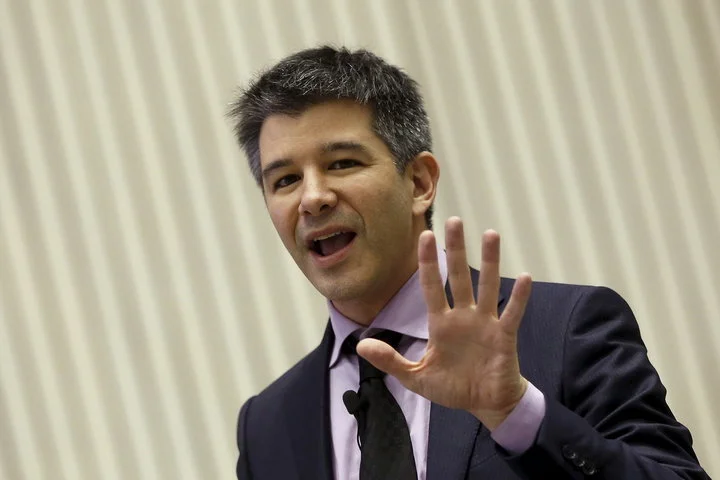As Uber’s Troubles Grow, Post Fails to Disclose Owner’s Ties to Ride-Hailing Giant
Published at Washington City Paper.
Editor Marty Baron says he doesn’t know whether Bezos is still an investor.
A review of Washington Post articles on Uber from this year—during which damning revelations about the company came in waves—shows that the paper is informing readers infrequently, and not at all in the past four months, that Post owner Jeff Bezos was, and presumably still is, an Uber investor.
It’s all but inevitable that the Post will cover stories involving companies connected to Bezos, who’s the founder and CEO of Amazon and now the second-richest person alive. The paper has set a high bar for disclosure when it comes to covering Amazon, routinely informing readers of Bezos’ ties to the online retail giant. And when it comes to Uber, as recently as last year the Post regularly disclosed the Bezos connection.
“We have frequently identified him [Bezos] as an investor in the company [Uber],” Postexecutive editor Marty Baron said just last year.
So what’s changed? Nothing, according to Baron. The drop off in disclosures isn’t due to a change in Post policy, he says. It’s just that the paper suddenly no longer knows whether Bezos is still an Uber investor.
“We knew he was an early investor,” Baron writes in an email. “I have no idea if he remains an investor.” He continues, “I don’t run his [Bezos’] personal investments. I’m not privy to his personal investments. I haven’t asked him about his personal investments. If you have a question about his personal investments, you might call the PR person for Amazon.”
Amazon, Bezos, and Uber all failed to respond to multiple phone and email requests for comment.
Is this what it’s come to? The Washington Post, famed for investigative reporting and breaking open the Watergate scandal, can’t bring itself to ask its own billionaire owner if he’s invested in a company the newspaper is covering?
“If the Washington Post does not know if Bezos is an Uber investor, it raises the question, how is the paper’s policy for disclosing the owner’s conflicts being enforced?” says Public Citizen’s Rick Claypool.
As an early investor in Uber, Bezos’ stake in the company, if he still has one, could be substantial (possibly more than the $250 million Bezos paid for the Post).
“Back of the napkin math has Bezos owning over $1.5 billion in stock (probably much more soon after they get valued again),” Adam Johnson of Fairness and Accuracy in Reporting said last year. “That, by definition, gives him influence in the company as any major shareholder would.”
But it’s not just money that ties Bezos and Uber. Travis Kalanick, co-founder and until last month CEO of Uber, admires Bezos’ Amazon so much that he created 14 core principles for Uber, mimicking Amazon’s. And both companies share other traits, like how they treatworkers, bully competitors, and cheat the government.
***
Even a new partnership between the Post and Uber, announced late last year, failed to inform readers about the owner’s connection. The Post/Uber collaboration will, according to the WashPost PR Blog, “creat[e] a tailored reading experience for The Post’s growing mobile audience” by allowing Uber riders to see their trip progress while in the Post app.
More recently, the paper failed to disclose Bezos’ ties to Uber in its stories on Kalanick resigning, even when the coverage cried out for it. One Post story, for example, provided insight into how (mostly unnamed) Uber investors organized to oust Kalanick, who controls an outsized number of voting shares and likely could have blocked a vote to force him out, had he not resigned.
“They needed to persuade Kalanick to make the move on his own,” the Post reported. “So the investors began talking daily over email, in texts and meeting in person for coffee, according to one source.”
While Baron says he has “no idea” if Bezos is an Uber investor, are Post journalists, who are reporting on internal deliberations between Uber investors, also in the dark? Such knowledge may not influence reporters’ coverage, but it certainly could (and possibly has in the past).
Still, a review of Post stories on Uber from 2017 (over 100) found that the paper only disclosed Bezos’ investment three times, and not at all since March.
Of the three disclosures, two came in January and both of these used the present tense to describe Bezos’ ties. A January story, for example, ended with this parenthetical: “Washington Post owner Jeff Bezos is an investor in Uber.”
The lone other disclosure came later, in March, but no longer used the present tense. “Amazon.com chief executive Jeffrey P. Bezos, who also owns The Washington Post, was an early investor in Uber.”
Despite having no idea about Bezos’ investments, the Post’s disclosures have gone from present tense to past tense to non-existent.
Having buried its head deep in the sand, the Post—whose new slogan is “Democracy dies in darkness”—has declared there’s nothing to see.


